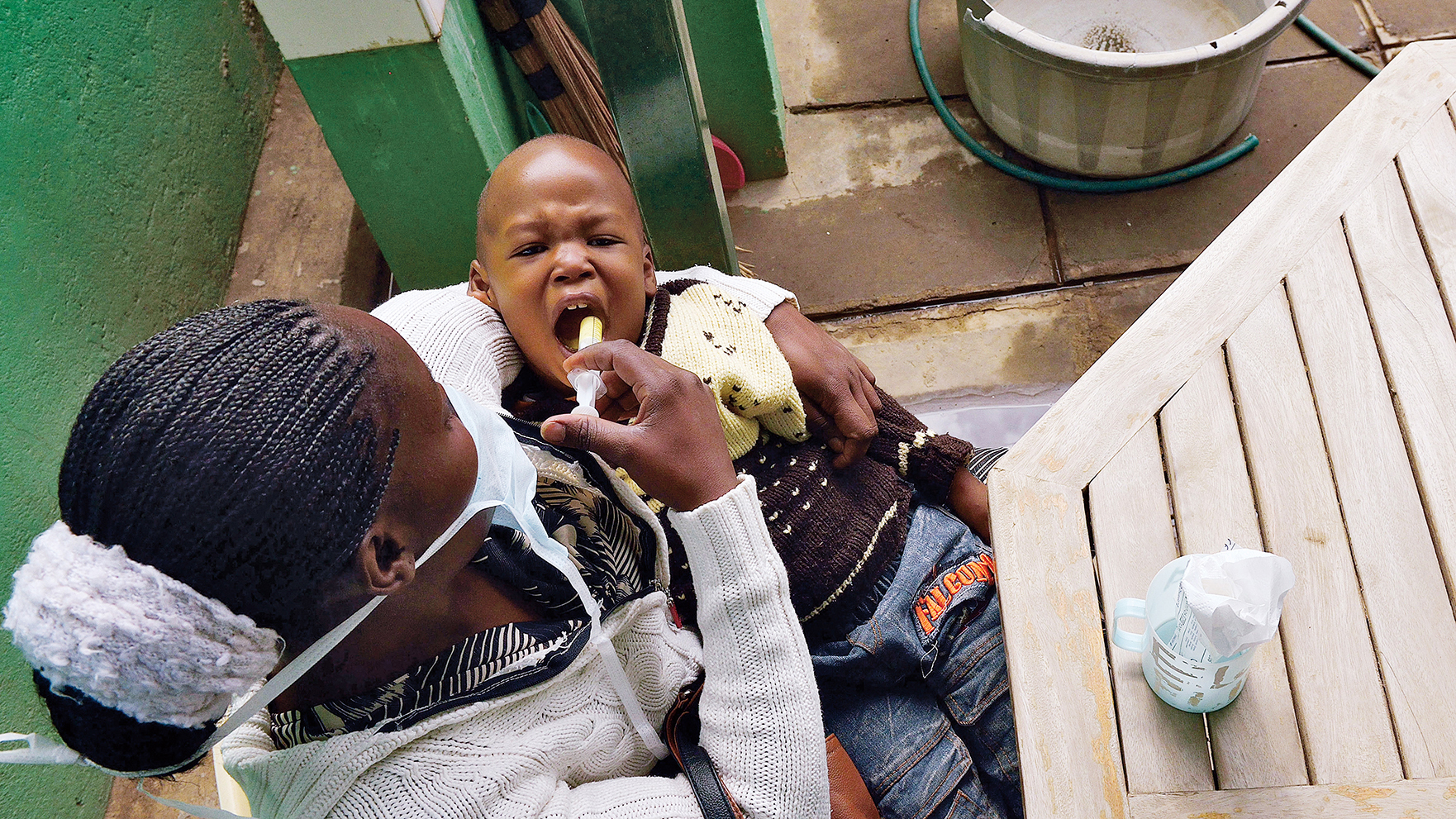
By Karen Shih
Kenya is one of many countries working toward universal health coverage — as urged by the World Health Assembly in a 2005 resolution — to provide its people with access to health services without financial hardship. Under Kenya’s new decentralized system of government, the responsibility of delivering health services falls largely at the county level, rather than the national level. While some counties are effectively serving their residents, others are lagging behind.
Associate Research Professor Wu Zeng, MS’05, PhD’09, led a World Bank-funded study to ascertain the reasons behind these differences. “Why are there variations among counties? What are the counties doing so differently?” he asked.

Zeng and his team assessed five counties across Kenya (two lower-performing, two higher-performing and one in the middle). They analyzed budget information from 2017 and 2018, conducted a stakeholder survey and interviewed health providers, procurement officers, human resources officers and chief health officers.
They found several factors that contributed to better performance: strong political commitment, well-trained staff and active community mobilization. Their county governments tended to allot a larger portion of their budgets to health. County health employees were also sufficiently trained to implement new policies from the national government. Additionally, robust engagement of community health workers meant better outreach and referrals to clinics, especially for vulnerable populations like pregnant women and children.
Counties with poor performance lacked community engagement, faced a shortage of staff, encountered challenging road conditions and had weak referral systems, often because of a shortage and mismanagement of financial resources for health.
All five counties, however, faced common problems of resources and autonomy. “They actually had more common problems than differences,” Zeng says.
Stakeholders interviewed said they didn’t have enough money or authority to hire the necessary personnel or procure the right equipment or medicine. Since the system requires the county government to manage these steps, there was often a delay. In addition, county government officials sometimes lacked the training to procure equipment or didn’t understand the urgency of their needs, which resulted in further delays.
Zeng hopes that this research can offer lessons to the Kenyan government as it seeks to improve health services across the nation. “If one county is doing well because of community mobilization work at the central level, maybe they should advocate for the community health workers,” Zeng says. As this is the first study of its kind in the region, Zeng also hopes the research can be applicable to neighboring countries as they work toward improving health care for their citizens.
He and his team offered several recommendations for the Kenyan government, such as developing a better payment system to avoid delayed payments to health providers and exploring innovative approaches to finance health care.
Ultimately, however, Zeng emphasizes that health care can’t exist in a vacuum.
“Economic development is the foundation for a decent health system,” he says. “If a country is poor, its infrastructure and financial resources may not be sufficient to finance health services, so it’s important to continue focusing on economic development.”
